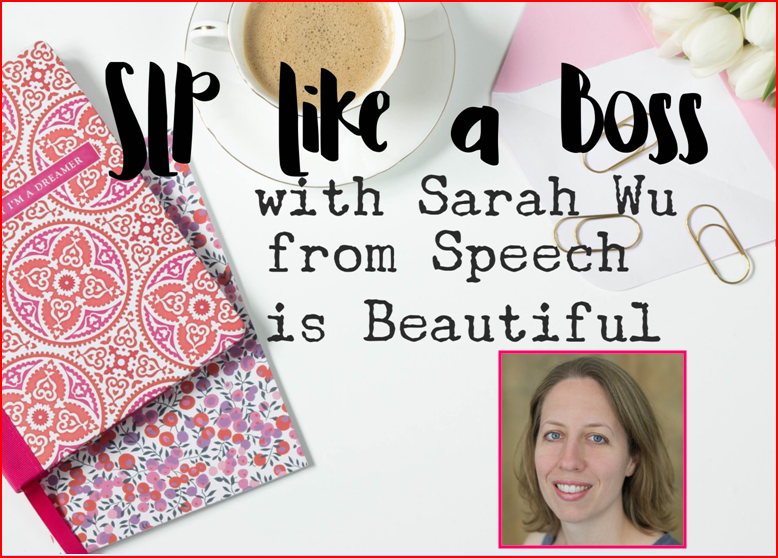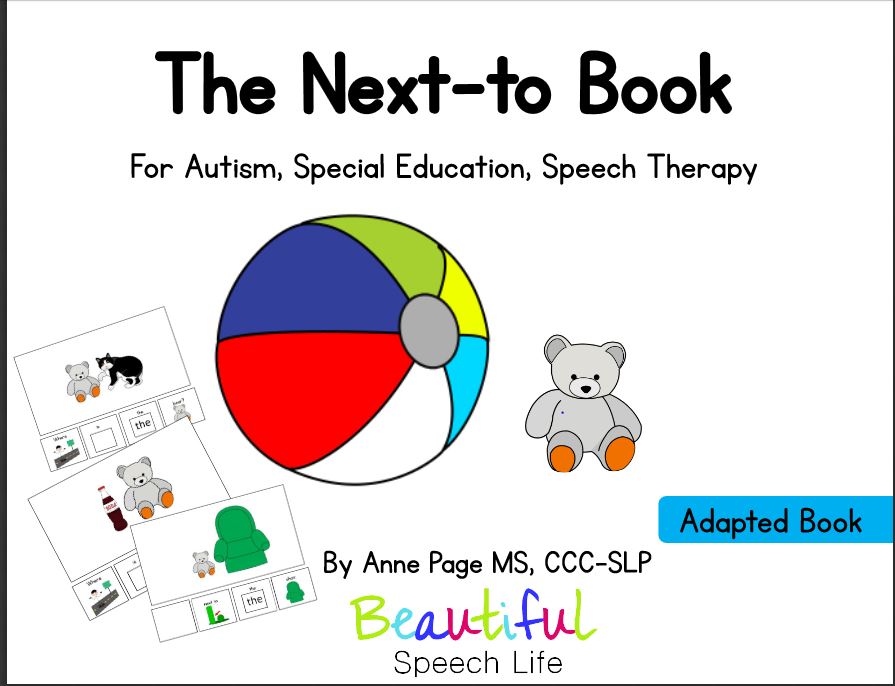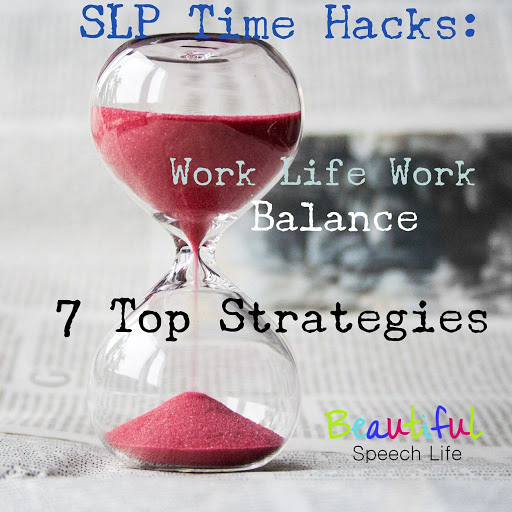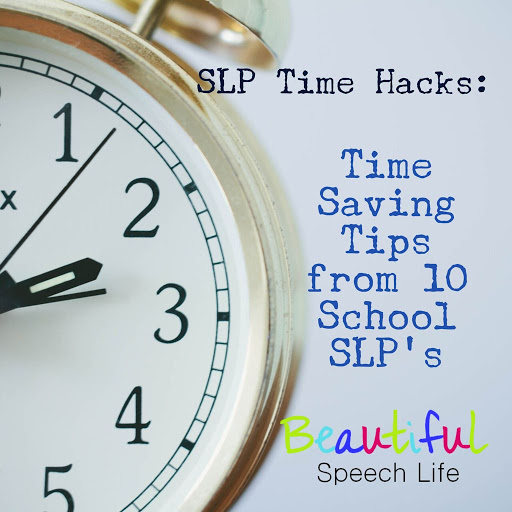
by Anne Page | Jun 19, 2018 | Blog, Inspiration, Uncategorized
This May I hit the one year mark for meditation. That means I actually showed up every day for ten minutes for me. That’s kind of monumental.
I think I was able to do it because ten minutes isn’t a huge time commitment. Really it’s ten minutes less social media scroll time, which I can certainly spare.
I wish I could say each meditation was perfect, blissful and ohm-inducing, but not so much. There were a few days that I stayed in the zone a little longer than others. But honestly most of the days it’s just like life: scattered, imperfect, and random with moments of clarity and genius.
What I got back from the ten minute a day investment has been really invaluable; little subtle lasting changes in my approach to every day life. For example, I have more patience. I’m not sure how that happened. Maybe it has to do with a better knowledge of time.

I have more pockets of calmness. I think it’s because I am more aware of how busy the mind can be and how random thoughts are always passing through.
I have a better awareness of the ability to change gears and how easy it is. I can remind myself those are just thoughts, they don’t have to be real.
I am more present more often; which makes me feel more grounded in gratitude. By that I mean instead of rushing from experience to experience, I get little reminders to breathe, be in this moment and soak in all the good stuff. And that goes for the bad stuff too. I know it might sound counter intuitive but now when I am in physical pain I let myself really feel it. Instead of panicking, I focus on where the pain is occurring in my body and give it a number on a scale of 1 to 10. I breathe into it. It really works.
Best of all I feel like I have an increased capacity for every day joy. It’s that feeling of being in the right body at the exact right time in your life. Those moments are fleeting but so delicious.
So how did I do it? I used my phone, ear buds, and a meditation app called Headspace.
They pretty much walk you through everything. Selling features for me were: really cool teaching animations, Andy’s cool British accent and it’s all backed by research. Watch Andy’s appearance on Jimmy Fallon here.
I’ve tried other forms of meditation but for some reason this is the right one for me. You can try it for 10 days for free too, that’s how I got started. Click the link here to learn more about Headspace.
Would you like to try Headspace for a whole month for FREE? Just comment below and tell me what qualities you want to cultivate through meditation. I’ll pick a winner on June 30, 2018.

by Anne Page | Jul 6, 2016 | Blog, Inspiration, SLP Like a Boss
What?![spacer height=”20px” id=”2″]
I want you to think about the school year during summer?[spacer height=”20px” id=”2″]
Yes I do. Just hear me out for a minute. Don’t worry, I still want you to enjoy your summer.[spacer height=”20px” id=”2″]
Summer is a time I always look forward to. Two months off to relax, regroup, travel and even do a little planning. Did June fly by for you too?[spacer height=”20px” id=”2″]
However, just taking a little time now to reflect on what worked for you last year will help you continue that trend. Did some new therapy materials get amazing results? Or did you find a new organization tool? You want to keep that good stuff going.[spacer height=”20px” id=”2″]
Take a moment right now. Close your eyes and think about going back to work. What’s the first thing you think of that fills you with dread? Or that gives you that “oh yuck” feeling? You know, that activity that you wish you could pay someone to do for you?[spacer height=”20px” id=”2″]
Really, I’m not trying to bring you down. I’m suggesting you take a look at what you can do to make it better.[spacer height=”20px” id=”2″]
I’ve been chatting with a lot of other SLPs this summer. Here’s a sampling of what some of you said when asked about professional roadblocks:[spacer height=”20px” id=”2″]
“It can get bit crazy with the testing and paperwork that is required. You feel like time is being taken away from your students.”[spacer height=”20px” id=”2″]
“[I have a] hard time finding the balance between paperwork and making sure my kiddos get the attention they need.”[spacer height=”20px” id=”2″]
“…lack of time.”[spacer height=”20px” id=”2″]
Hands down lack of time and too much paperwork were the biggest obstacles.[spacer height=”20px” id=”2″]
I know it can be overwhelming at times. So what I’m suggesting is that you take a little bit of your down time, even if you’re just making some mental notes from your beach blanket, to put some systems into place that will make the coming school year run more smoothly.[spacer height=”20px” id=”2″]
During the next few weeks, we will explore some systems and thought processes that will help you free up your time. So you can get your school year running smoothly and spend more time doing what is really important to you…spending time with your students and making a difference in their lives.[spacer height=”20px” id=”2″]
We’ll explore it all from IEP’s to scheduing to progress reports to billing.[spacer height=”20px” id=”2″]
But for now, let’s start off nice and easy with a thought provoking question…[spacer height=”20px” id=”2″]
What is your why?[spacer height=”20px” id=”2″]
Think back to why you chose to be an SLP. Specifically a school based SLP. What are your top three reasons? Really think about it and dig deep. Don’t let yourself off the hook with “I don’t know”, this is important. Are the reasons still the same? What results do you want? You can do this, it doesn’t need to be perfect; you just need to be clear.[spacer height=”20px” id=”2″]
Here’s my example just to get you started. My top three “why’s” are:[spacer height=”20px” id=”2″]
- Connectedness. Making the world a little better place than when I got here (lofty, I know)
- Independence. (I like having a lot of autonomy to make my own decisions)
- Diversity. I love how diverse the profession is, with the continuous learning curve.
- Honestly, salary and vacation time does have something to do with it; I’m pretty happy with mine, considering the amount of time I have off.
- Creativity/Play. Helping my students learn through play and creativity is another aspect of the job that I really love. [spacer height=”20px” id=”2″]
(I know that’s more than three, I’m having a tough time narrowing it down.)[spacer height=”20px” id=”2″]
So here’s your “homework”… figure out your top three reasons for being an SLP. I’ve created a few fun worksheets for you to help get you started, just click on the image below.[spacer height=”20px” id=”2″]
Stay tuned for next week, when you’ll figure out how to get more of what you want (from your 3 things list) and remove some of the obstacles.[spacer height=”20px” id=”2″]
SLP Like a Boss,[spacer height=”20px” id=”2″]

by Anne Page | May 24, 2016 | Blog, Inspiration, SLP Like a Boss, Uncategorized
What’s SLP Like a Boss? An SLP boss is professional, compassionate, organized and Inspirational with a capital “I”. An SLP boss gets things done! In this series I’m interviewing SLP boss women who work by day as SLPs , but at night (and on weekends) they are business builders, advocates, huggers, tear-wipers, encouragers and creators. These are strong, amazing women that I admire and am happy to call Friend.[spacer height=”20px” id=”2″]
Today our SLP Boss Lady is my friend Sara Wu. I met Sarah in Las Vegas last summer at the Teachers Pay Teachers (TPT) Seller’s Conference. (I met so many great people there.) We also share the blog Speech Spotlight, along with seven other fabulous speech language pathologists.[spacer height=”20px” id=”2″]
Sarah is a powerhouse bilingual SLP. Not only is she bilingual (speaking fluent Spanish), but she has a Chinese last name (Wu), and is a dual citizen(she was born in Australia). Sarah is mother to two young boys and still finds the time to create bilingual therapy materials for her TPT store AND to blog weekly. I love her thought provoking, helpful and insightful blog posts. She writes “evergreen” content that you’ll want to bookmark and share with your friends. I’ll put a link to her blog and TPT store at the end of this post for you.[spacer height=”20px” id=”2″]
I write this series because I feel we can all make our practice as SLPs better and stronger by connecting with other SLPs. It’s also really interesting to see what other SLPs are using in therapy and what advice they have to share.[spacer height=”20px” id=”2″]
So let’s dive in and see what we can learn about Sarah.[spacer height=”20px” id=”2″]
Tell me about yourself in seven words: Joyful, fun, silly, smart, mischievious, mother, and writer.[spacer height=”20px” id=”2″]
Where did you go to grad school?: Northwestern University.[spacer height=”20px” id=”2″]
What are your top three SLP must haves (other than your own amazing materials)?: My clipboard, my laptop, and big foam dice.[spacer height=”20px” id=”2″]
What do you love most about what you do?: Helping my students reach their potential. I think the students I work with have so much potential that’s hard to see. So many of them speak Spanish only and they’re learning English. I work with them exclusively in Spanish until they are ready to move on to English.[spacer height=”20px” id=”2″]
Tell me your advice for the newly minted SLP: It’s important to take risks. I don’t think it’s something women are encouraged to do. Don’t just take the safe path, not just the easiest or the closest. Don’t settle. Do what you have to do to go for it. I’ve always made sure I feel one hundred percent about where I work. If you don’t, it’s worth it to take a leap.[spacer height=”20px” id=”2″]
Tell me about your blog: I like to make sure that it’s useful and important to SLPs. I blog about being bi-lingual. I talk about topics instead of products. [spacer height=”20px” id=”2″]
Tell me about your TPT store: I’m creating the Spanish products I can’t find anywhere else. Sometimes I don’t care for the word choices of commercially produced items. It’s not just Spanish, I have English products too, and bilingual. They’re so much fun to create.[spacer height=”20px” id=”2″]
What SLP-boss inspires you? Natalie Snyders. Her products are very evidence based and well researched. And she has the gift of connecting other SLPs through facebook. My hat is off to her.[spacer height=”20px” id=”2″]
What is your favorite children’s book? Charlotte’s Web[spacer height=”20px” id=”2″]
What about picture books? La Oruga May Hambrienta (The Very Hungry Caterpillar)[spacer height=”20px” id=”2″]
So now you know a little more about one of our fellow SLPeeps and SLP Like a Boss Sara Wu. I hope you feel inspired and connected, I know I do.[spacer height=”20px” id=”2″]
Who inspires you to SLP Like a Boss? Would you like to suggest an SLP for me to interview? Let me know in the comments OR email me at
[email protected].
Until next time,[spacer height=”20px” id=”2″]
Anne

by Anne Page | May 3, 2016 | Autism, Blog, Language Activities, Therapy Materials and Ideas, TPT Products
Do you feel like you are aimless or not at the top of you game when working on prepositions?
I can totally relate. I work with a lot of special education students. I tried taking pictures of students under tables, in chairs, next to each other. They enjoyed the activity but it didn’t stick.
I tried having them take turns putting a fun toy on the chair or taking it off the chair. Again fun, but not getting the concept.
I tried it with matching puzzle pieces, with apps, and games. Still no lasting success.
Talk about feeling like a Bad Therapist.
But I kept trying.
Then a combination of learning experiences came together. I noticed that teaching opposite prepositions didn’t work. I noticed that kids got distracted by little details in pictures. I went to an amazing presentation by Dr. Elena Plante, research SLP from University of Arizona and she talked about the importance of errorless learning and teaching one concept at a time.
I learned about fast-mapping. Fast mapping is the psychological term for learning a new concept after a single exposure to information.
Students with SLI and cognitive impairments are not able to fast-map like their typical peers.
So….
I tried making a book with simple visuals and white background. This way the focus was only on the relationship of the objects to each other.
There is a picture strip with words at the bottom of the page, always the same “Where is the _____”(object) The next page always has ______ (target preposition) the ___________ (relationship word).
Object remains the same. For example in “The Under Book” the object is always a banana, it is always under something. Going through the book once gives 12-15 repetitions.
The other important piece is that the skill needs to be taught in more than one setting. So with all of the prepositions books I offer examples for how to extend the new concept into different settings.
I’m still doing more investigating in this area but I can say, I’m having good results with these books. So are the people who have bought them.
” I am so excited about this book! I have several students who are working on positional concepts and it just takes so many repetitions to learn the concepts. I love that this book is full of repetitions. I am looking forward to more in the future!” ~Buyer
Here is the new “Next To Book”. This completes the first three prepositional concepts that children with typical language development acquire at the age of 3: “on” and “under” and “next to”. I’ll be working on the next ones soon.

While I was doing my research, I put together this handy little chart. This will be great as a parent/teacher handout and just to keep for your own reference. I’m giving it to you for FREE, just click here. As a Beautiful Speech Life follower, you are getting it early! I already gave it to my TPT followers, but if you missed it, here it is again. I’ll be putting it in my TPT store later. (It’s also included in The Next To Book)
So take charge of those prepositions and SLP Like a Boss,
Anne
P.S. Did you like this post? I’d love it if you’d share it with your friends. Subscribe at the bottom of this so you don’t miss any of the fun.

by Anne Page | Jan 26, 2016 | Blog, Inspiration, SLP Time Hacks
I know a lot of SLP’s that work at their day job, have families and have second jobs as SLP bloggers/TPT sellers. How do we manage big caseloads and endless reports at work and take care of our families and find time to write a blog and create therapy materials? Can I just say I probably have more questions than answers? [spacer height=”default”]
It can be quite a balancing act with no perfect right answers. These are questions each SLP just has to answer for herself.[spacer height=”default”]
What I can do is provide some ideas and battle plans that have worked for others. I can get pretty scattered here so I had to choose my top seven. [spacer height=”default”]
1. Be crystal clear on your priorities.
For me my spiritual foundation comes first, that has to be in place and nurtured for me to be able to give to others. Next is my family, spending time with them and letting them know they are loved is everything to me. The rest is a little harder to separate. Health and fitness. Work. Adventure. Friends. More work. Following my dream. It’s kind of like the Stephen Covey rocks in a jar example: spirituality and family love are the rocks and the rest is the sand.[spacer height=”default”]
2. Perfection is the enemy.
I really battle with perfectionism. I consciously and daily ask myself “Does it need to be perfect or does it need to be done?” Don’t give me wrong, I have high standards, I just choose my battles. My bed probably doesn’t need to be made perfectly every time, so it’s okay if my husband makes it (haha).[spacer height=”default”]
3. Schedule everything
Make your list and then write the items down in your calendar. That is how they get done. There is some kind of magic in taking this action. Schedule little chunks of uninterrupted time to write blog articles and create TPT products. If you’re like me, this time is hard to come by. Guard it from the time-wasters.[spacer height=”default”]
4. Ask for support.
Don’t try to do it all yourself. If you’re working really hard on a deadline, ask your husband to make dinner or get takeout. Hire a housekeeper. I did that last year and it has been one of the nicest things I have ever done for myself. If you are stumped with a problem at work, reach out to your SLP colleagues. There are some really supportive Facebook groups link here and SLP Instagram community is very supportive as well.
Click here to read my post about Facebook groups.[spacer height=”default”]
5. Think outside the box.
Do you always do laundry, groceries and errands on the weekend? What about throwing in one load on Tuesday night when you have an hour to blog? Try online order and delivery. I used Prime Now for the first time this weekend and saved myself three trips and probably an hour of time for a seven dollar delivery fee.[spacer height=”default”]
6. Use social media-don’t let it use you.
Cut back on social media time. Noooooooooo! We SLP’s are social creatures, it’s so easy to just pop over to Facebook to check if someone replied to our post or to see what’s new on a group board. I started limiting my social media time to certain times of day and I give myself a time limit. As a result I feel less scattered and I can concentrate on what I’m doing. I love connecting but now I do it on my own time (turn off notifications, you can do it!)[spacer height=”default”]
7. Take care of yourself!
If you don’t do it no one else will. Save some time just for you. I know this is probably the hardest one but it’s the most important. You have to fill the well. Write it down, negotiate it with your people, beg borrow or steal it, but do it. Give yourself that time to dream, reflect and just be.[spacer height=”default”]
These are my tips gleaned from wise friends, life experience and countless books. Take what resonates for you and leave the rest behind.[spacer height=”default”]
And from the bottom of my heart kudos to all of you for having the desire and determination to push through boundaries and follow your dreams.[spacer height=”default”].
You make the world a much brighter place,
P.S. Did you like this post? If you did sign up for my email list to be the first to know about new products, freebies and sales. Also follow me on TpT to receive exclusive monthly freebies only available to TPT followers.

by Anne Page | Jan 19, 2016 | Blog, Inspiration, SLP Time Hacks, The Organized SLP
Life as an SLP is all about time, it’s one precious commodity! I’m always looking for ways to streamline my schedule so this week I asked some of my smart SLP friends for their expert advice. Here’s what they said:[spacer height=”default”]
Mia Reed McDaniel
Hmmmmm Time is my enemy. I’m always struggling to stay on schedule and use my time wisely. The biggest time eater for me is people stopping by my room to visit. As much as I love my co-workers, I had to resort to putting up
a “Do Not Disturb – testing” sign from time to time just so I can make the best use of my time. Also, I
keep TWO to-do lists, “To-Do NOW” and “To-Do LATER” which helps me prioritize and focus on what I need to do FIRST.
Putting Words in Your Mouth [spacer height=”default”]Looks Like Language
I am always late in therapy- too involved- but not in real life! What saves me is organization! Life tip-
get lunch ready and clothes out the night before. Work tip-
use page protectors to keep similar worksheet originals in one spot and store the page protector sheets in a binder labeled with the skill.
Looks Like Language [spacer height=”default”]
Felice Clark
I have my speech schedule tucked in the front of my data/therapy binder. For a while, I used to
use a timer to help me know when that last 5 minutes hit, so I could wrap up therapy. If we didn’t finish our lesson, then I would collect all the papers, crafts, etc. and store in my file folder for next session.
The Dabbling Speechie [spacer height=”default”]
Susan Berkowitz
Prepare in advance. When I was in the schools I was in 5 different schools each week, which meant multiple schools each day and never enough drive and park time in-between (especially in the snow). I always tried to
prep in advance (on a weekend) so that I had everything I needed for each group, all organized and together by group and stowed in the back of my van and ready to grab and run. My van was my office, so I had to keep it organized or life was a mess. I
color coded the groups and could quickly see and grab. I also always kept
a pile of good language games in the van, too, so that in a pinch I could always grab a game quickly if I needed to. But, like everyone who runs between schools I always was late and running – never enough time in the schedule.
Kidz Learn Language[spacer height=”default”]
Lisette Edgar
My biggest plus for getting to work on time is that I live 1/2 mile from school! Other than that,
prepping the night before helps. I have a small fridge in my room, and I
bring meals/ sides for the week an store in there, so I am not fixing my lunch each morning. I usually eat a yogurt for breakfast first thing at work while I am checking e-mails…. Multi- tasking!
Speech Sprouts[spacer height=”default”]
Sarah Wu
I have a couple:
on Sunday night check your work email. It’s a pain but that way you can come to work in Monday and know you have “inbox zero.” My administration likes to send emails on Sunday and I don’t like coming in on Monday knowing there are emails I need to get through. Also,
buying a black fleece jacket with the school district’s logo on it has been a lifesaver. There’s a “company store” on the school district’s website. I leave the fleece at work and I can throw it on if I encounter variable temperatures throughout the building and still look professional. I also
leave a plain pair of black leather shoes at work under my desk during the winter so that when I wear my boots to work, I can quickly change out of boots and I don’t have to lug nice shoes along with everything else I carry to work! Phew!
Speech is Beautiful[spacer height=”default”]
Kim Lewis
I can second a lot of what has already been said. I prep my lunch the night before (and as much of breakfast as I can–coffee is always set so it’s ready when I arrive in the kitchen) and my clothes. I
almost always prep all of my sessions for the week on the weekend. I also
use Dropbox frequently. This means if I have a few moments (if a session is cancelled, for example), I can work on progress notes or a blog post or something more productive than checking social media! I run late all the time. I will
set the timer on my phone to make sure I wrap things up in time. My students and I have to walk back and forth to my “house” for speech–great on nice weather days, a huge pain when it’s raining–but I often underestimate how much time little legs need for travelling. I’m always saying, “let’s use fast feet” 😉
Activity Tailor[spacer height=”default”]
Tracy Willock Morgan
I have been concentrating on finishing what I start. It is very easy to get into the pattern of starting, stopping, re-starting, etc.
Having to re-start something multiple times is a total time thief. Please don’t hate me, but I am one of “those” who is always on time. IDK-I think I’m just wired that way.
Gold Country SLP[spacer height=”default”]
Jennifer Bradley
I pre make lunches and pack my materials/files bag the night before. To get my husband to stay on time, I set his clock ahead by 10 minutes (he still doesn’t know!)
Such great ideas! I would have to say my biggest timesaver at work is Evernote. I have it on my laptop at home and at school and it is synced to my iPhone and my iPad. It’s my giant digital file cabinet. I keep present levels and evaluation reports in a “notebook”. Evernote is organized by notebooks and notes. For getting to work, I have lunches ready (I’d say in 4 out of 5 opportunities as measured by therapist data…haha) and I have my outfits for the week lined up in the closet. [spacer height=”default”]
My biggest tip is to find a little bit of time just for you everyday, even if it’s in the small hours of the morning before everyone else is awake. I try to stick to that because it really keeps me grounded and positive.[spacer height=”default”]
I hope you can use some of these tips to make your days run more smoothly. I know I will. Be sure to click on the blog names to be taken straight to more SLP blogger tips and insight. Such a great community! [spacer height=”default”]
Did you like this post? If you did sign up for my email list to be the first to know about new products, freebies and sales. Also follow me on TpT to receive exclusive monthly freebies only available to TPT followers.[spacer height=”default”]













 Hey there I’m Anne Page. I help heart centered SLPs and educators put the fun in functional communication.
Hey there I’m Anne Page. I help heart centered SLPs and educators put the fun in functional communication. 